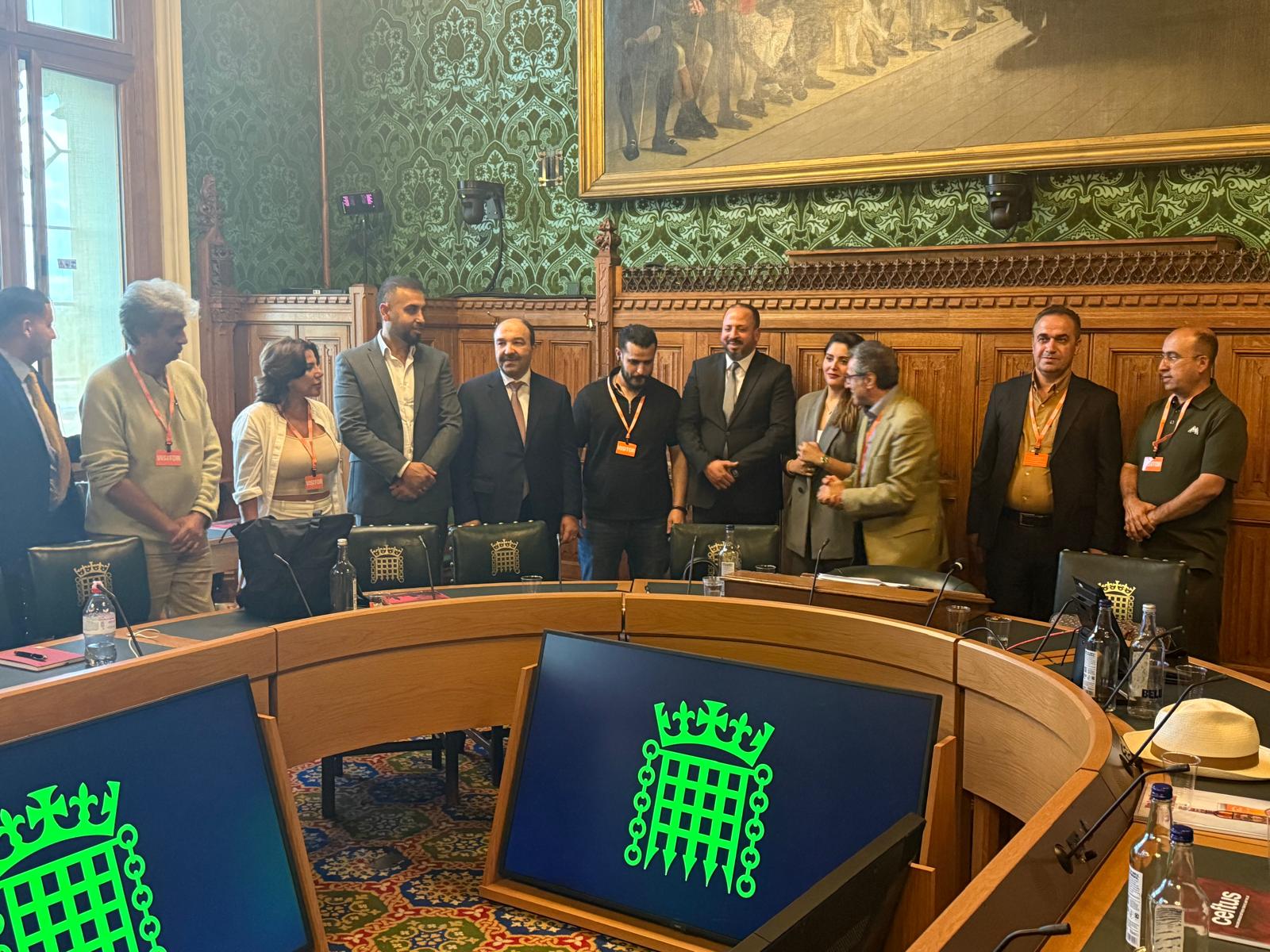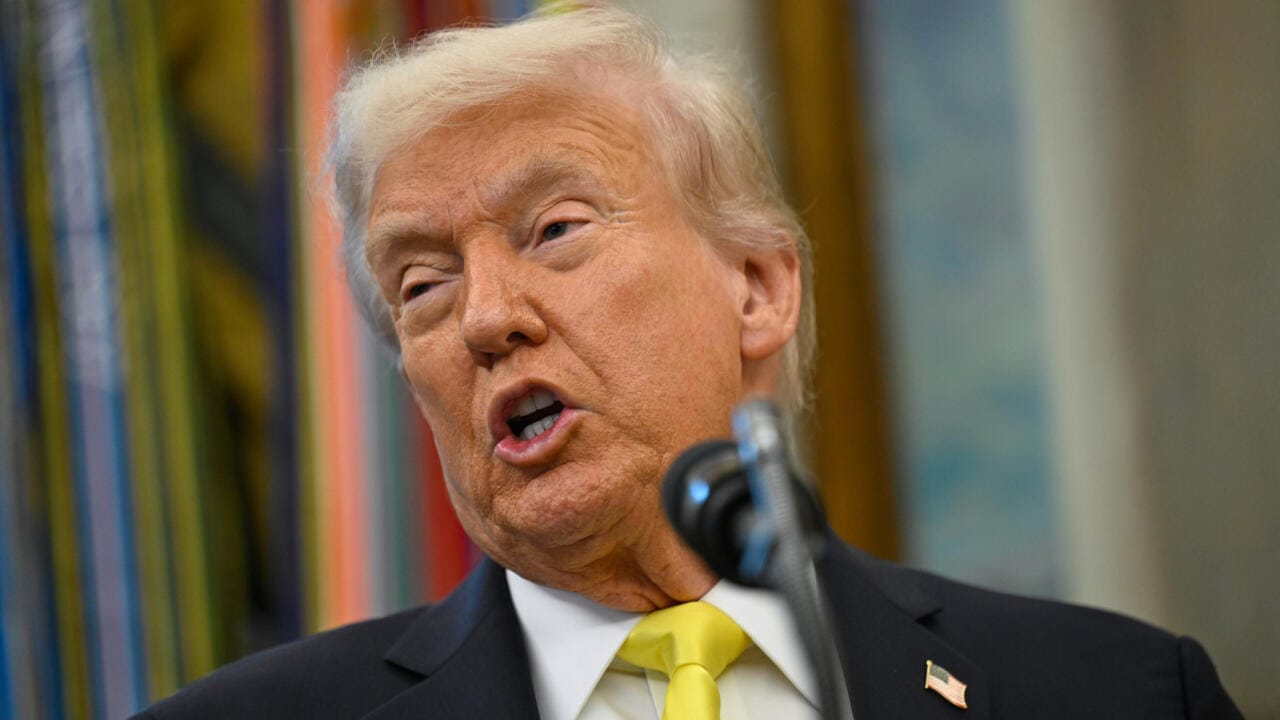Libya 2030 Delegation Concludes Strategic Visit to London
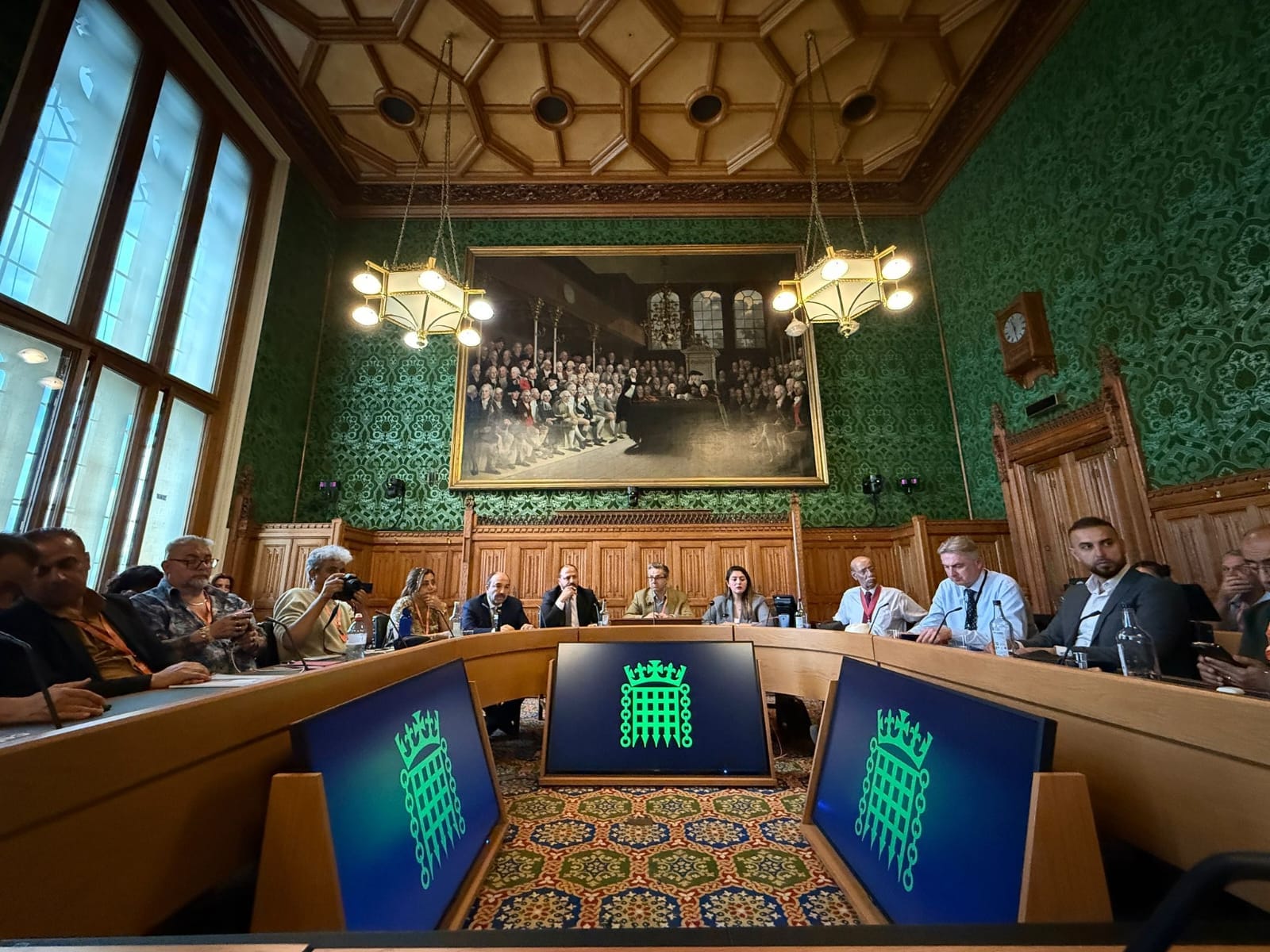
London, United Kingdom – A senior delegation from the Libya 2030 Political Initiative has concluded a high-level visit to London, carrying a clear and urgent message: Libya is at a dangerous crossroads, and only the formation of a unified government—backed by coherent international support—can steer the country away from collapse and toward a sustainable path of peace, stability, and development.
The delegation was led by Ali Ben Younis, Head of the Initiative, accompanied by Ali Sasi, Deputy Head, and Zainab Tarbah, the Initiative’s Spokesperson. The visit aimed to highlight the deteriorating political and economic conditions in Libya, raise alarm over escalating tensions in Tripoli, and mobilize international awareness and action—starting with the United Kingdom.
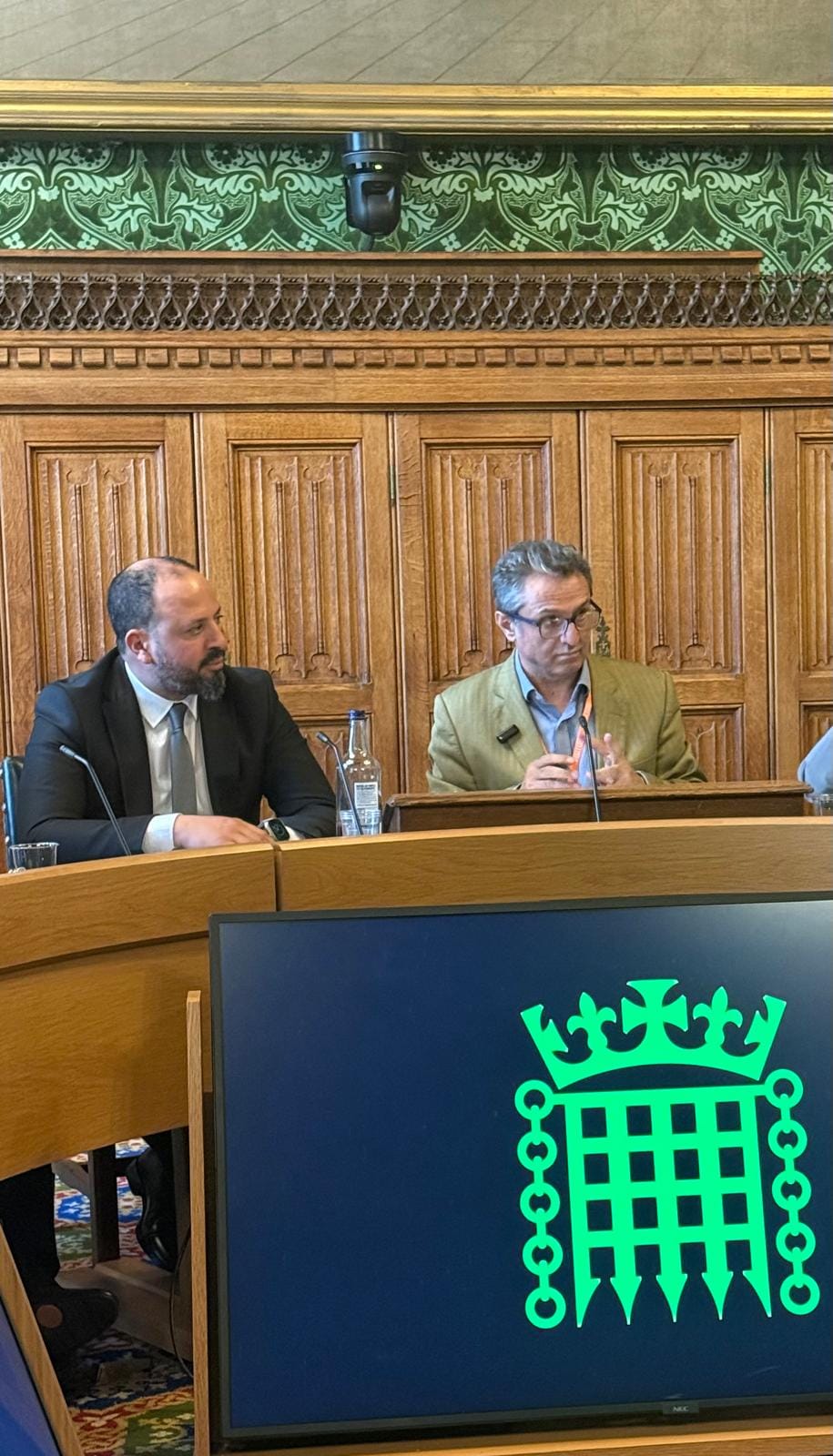
A Pivotal Session at the UK Parliament
The highlight of the visit was a focused discussion session held at the UK Parliament, where British MPs, policy advisors, and journalists gathered to hear first-hand assessments from the Libyan delegation. The session explored the trajectory of Libya’s conflict since the UK-led intervention in 2011 and examined the shortcomings of the United Nations-led political process, particularly its failure to deliver meaningful change over the past decade.
Speaking at the session, Ali Ben Younis emphasized the need for international alignment with grassroots Libyan efforts:
“Domestic initiatives must be closely integrated with international support to chart a path out of the current crisis—one that continues to drain Libya’s resources and amplifies the looming danger of national disintegration.”
He further noted:
“A major factor behind Libya’s ongoing instability is the absence of an external environment capable of fostering and sustaining political transformation. While several international actors initially drove change, they quickly withdrew, leaving Libya fragmented and vulnerable—without any mechanisms to manage the fallout.”
Libya’s Economic Potential and the Need for Partnership
In his briefing on Libya’s economic landscape, Ali Sasi offered a strategic view:
“From an economic standpoint, Libya will not be a burden on its partners. We possess vast natural and human resources, along with an estimated £50 billion in frozen assets abroad—including £13.4 billion held here in the United Kingdom.”
He stressed that unlocking this potential requires political unity:
“Forming a unified government with a clear development agenda is not only essential for national recovery but also for opening the door to serious economic partnerships—especially with allies like the UK.”
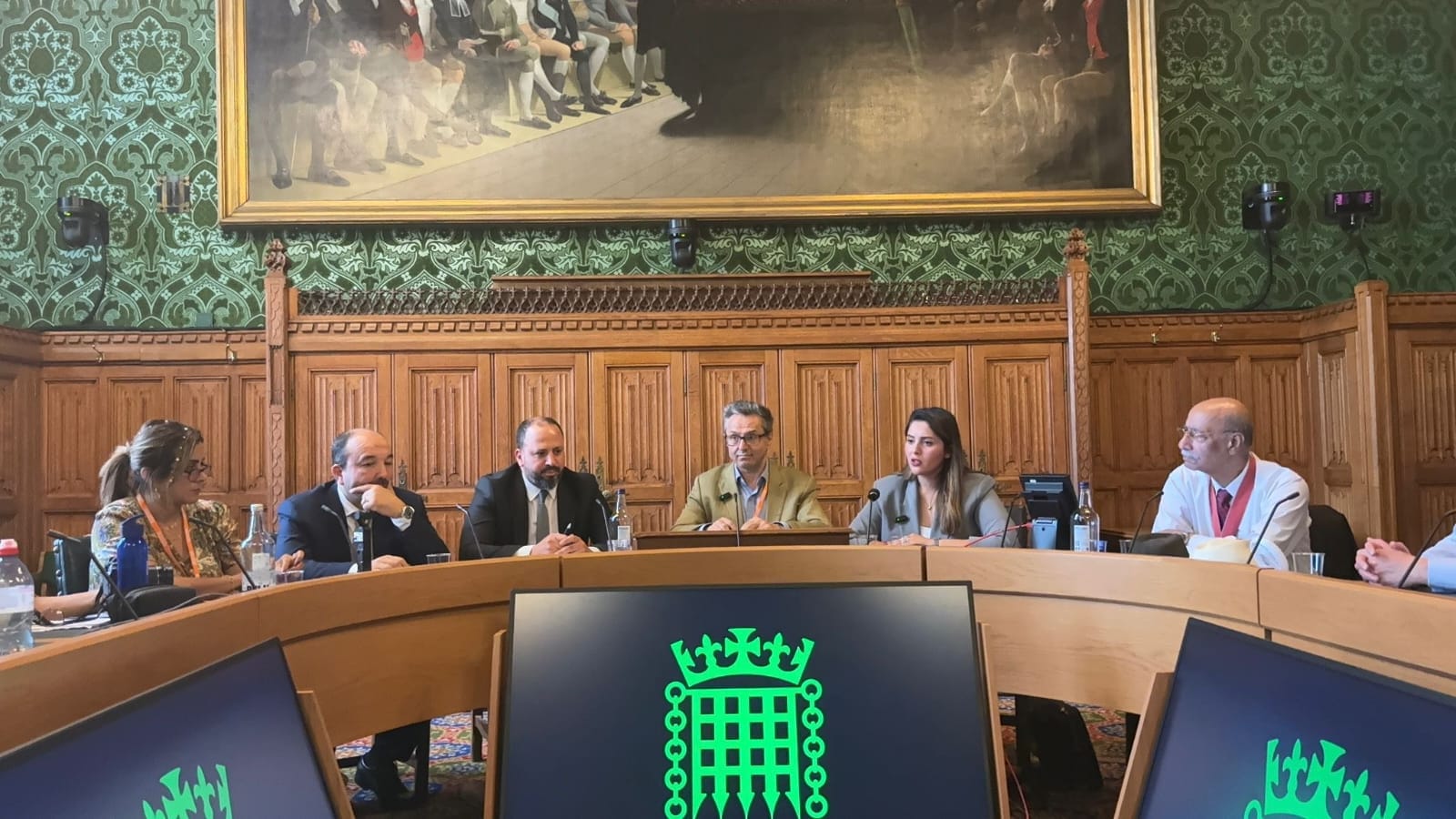
Media Under Siege: The Case for Ethical Journalism
In her intervention on the media and information landscape, independent journalist and spokesperson Zainab Tarbah delivered a stark assessment of freedom of expression in Libya:
“Libya has one of the highest digital penetration rates in the region. Over 6.4 million Libyans—more than 97% of internet users—rely on social media, especially Facebook, as their primary source of news. But this space is flooded with anonymous, politically-funded pages and coordinated disinformation campaigns.”
She added:
“Journalism in Libya is not just under pressure—it is deliberately suppressed. The 2023 arrest of journalist Ahmed Al-Sanussi in Tripoli, following his criticism of powerful actors, is one such alarming example.”
Tarbah called for UK support in building a more ethical and independent media sector through:
• Supporting the building of an independent and ethical media environment
• Training and protection for journalists
• Holding international tech companies accountable for neglecting fact-checking in Libya
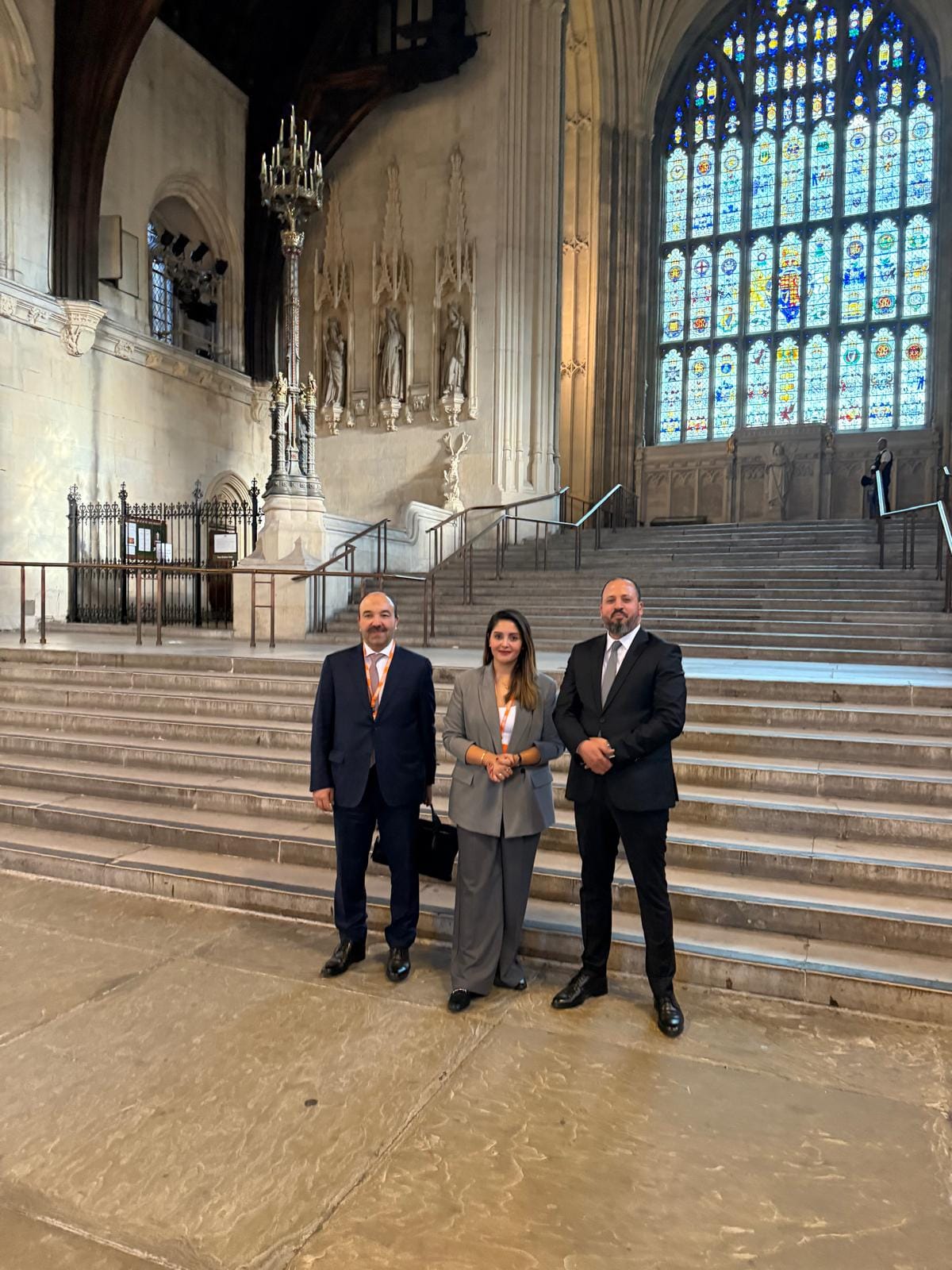
The delegation met with several British parliamentarians, including MPs Jake Richards, Fred Thomas, Bayo Alba, Becky Gettins, Sam Rushworth, and Kate Osborn. They also met with Lord Peter Hain, a longstanding advocate for peace in Libya, and had the opportunity to exchange views with former Secretary of State for Defence Dr. Liam Fox.
These engagements reflected growing recognition in the UK of Libya’s fragile political situation and the urgent need for a new, inclusive transitional arrangement.
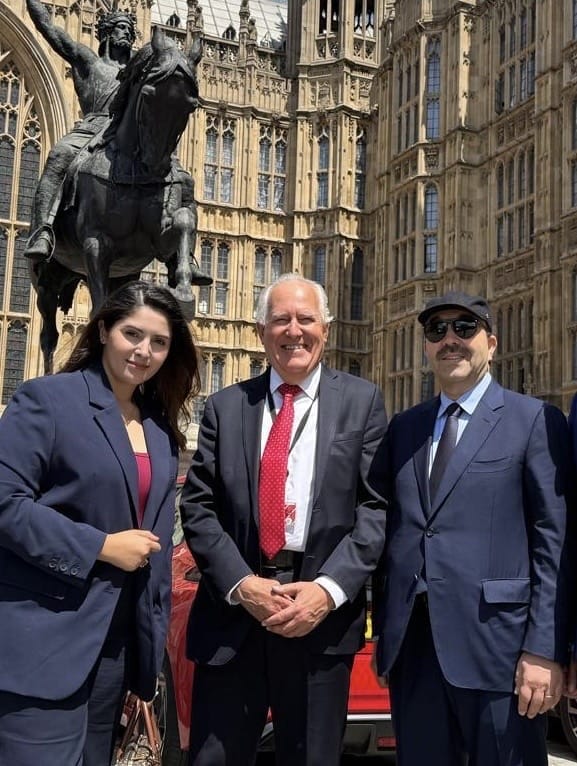
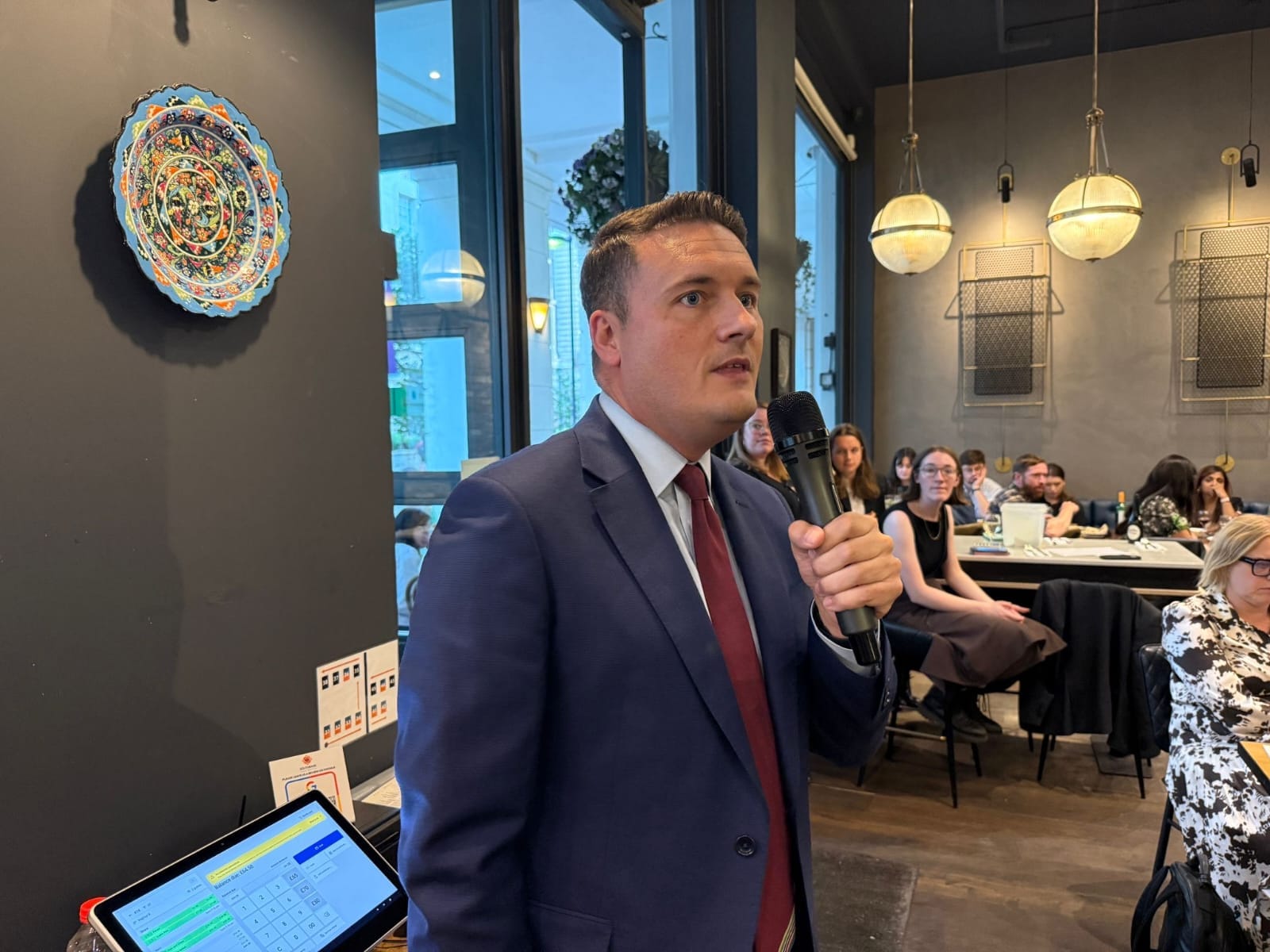
A Broader International Campaign
This visit is part of a wider diplomatic effort by Libya 2030 to engage key international partners across Europe and North America. The Initiative is calling for urgent and coordinated support to facilitate the establishment of a unified Libyan government—one that can oversee fair elections, enact a permanent constitution, and lead the country toward a democratic and sovereign future.
As conditions in Tripoli grow increasingly volatile and the threat of renewed civil conflict looms large, Libya 2030 is urging the international community not to repeat the mistakes of the past, but to stand firmly with the Libyan people in shaping a better tomorrow.

